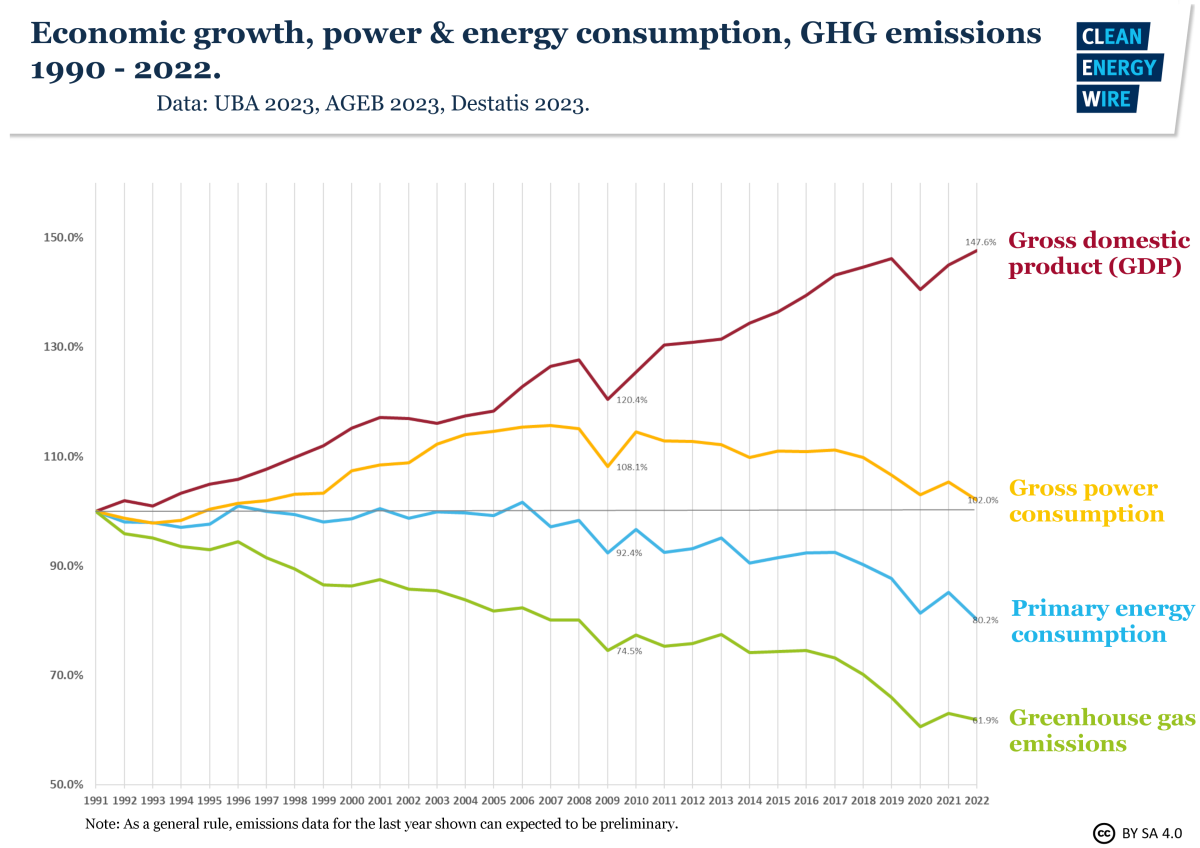Despite this fall in coal reliance, the thinktank said, “most of the emissions cuts in 2023 are not sustainable from an industrial or climate policy perspective”.
Müller said: “The crisis-related slump in production weakens the German economy. If emissions are subsequently relocated abroad, then nothing has been achieved for the climate.”
To hit its climate targets, Germany needed a “barrage of investments” to modernise industry and reduce the carbon footprint from heating, Müller said.
Hmmm decades of profits and they couldn’t afford to do it themselves without needing a barrage of investments?
New solution, ban all dividends and payouts from companies until they invest in being clean.
Removed by mod
That’s the part I don’t get… How could it have been higher while they had nuclear plants??
It seems like nuclear started being phased out in the early 2000s, and wind only started getting phased in, in like the 2000s and with a bit of solar getting phased in around 2010.
Fossil fuels seemed to take up more than half of their energy mix till like 2008 ish (?), and only really starting to drop off around 2016.

Although now I’m also kinda wondering what their total energy usage/ production was during that time now.
Graph showing GDP, energy consumption, and emissions since 1991

deleted by creator
Because nuclear renewables replaced a lot of nuclear power, Germany was a net electricity exporter, but that turned around, and electricity consumption is down a lot.
Nuclear is not the only way to provide clean energy.
Then other parts of the economy. Electricity makes up a quarter of Germanys emissions. Gas boilers, combustion engines and so forth all emit a lot, but they are not something, which can be replaced with a nuclear power plant. That takes other systems like heat pumps, electric cars and so forth. Since that makes up most of the emissions changes in those areas matter a lot more then the electricity system.
So you’re saying it could have been even lower
Removed by mod
I’ll have you know that Uranium is green (sometimes).
Removed by mod
Yup, coal is though, comes from plants, so much greener. So glad they closed the big bad nuclear plants so they could be more reliant on green coal. The air itself is cleaner now.
Removed by mod
Hope you realize that green energy also requires a ton of mining and construction.
Ah yes, clean gas from green wells and mines…
there is no good way to store the waste
You should educate yourself more…
You are right that mining is dirty as hell and if we only consider the ecological impact of mining then nuclear is a much better solution than renewables energy.
For the whole world to transition to renewables energy the production of copper will need to be multiplied by 2.7 in 2040 compared to 2020 levels, rare earth by 7.3, lithium by 42 ! …
Uranium mining is terrible for environment but so is copper mining, cobalt mining, lithium extraction … Since uranium is so dense energetically we only need a very tiny amount of it to produce electricity so overall the mining impact of nuclear is much lower than renewables energies.
The amount of copper and other minetals used for renewable energy is way higher than nuclear, these have to be mined too.
I’m not advocating for nuclear but there is so much disinformation around it that does not help the debate.
One day… I hope while I’m still kicking.
Removed by mod
Its easy when you outsorce more and more industry to countries who don’t regulate emissions.
You can not outsource certain emissions like the electricity grid, transport within the country and heating. Also Germany is a massive exporter of industrial products.
So, still twice the co2 emission of France nuclear based energy production. Good job ecology nerds.
or 60% more per capita and propably around 18% more then the EU per capita.
What do you expect from a country most famous for genocide and killing millions in two World Wars?
What point are you trying to make and how is it related to the holocaust?
If you’re adding the context that basically says “it’s all bogus”, why not adjust the headline accordingly? This makes it seem like Germany actually did something to protect the climate.
Yeah, we wrecked the economy by trapping it in dead end technologies and killing off innovations for decades under conservative government. Degrowth like a champ!




